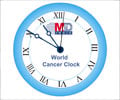Light drinking is associated with an increase in the risk of certain cancers, say researchers.

The researchers concluded that while the risk of these cancers was only slightly increased from such drinking, there were detectable increases in cancers of the oral cavity and pharynx, esophagus and female breast. They report no increase in the risk of cancers of the colorectum, liver, and larynx to be associated with such drinking.
Forum reviewers were concerned about a number of aspects of this study. While the statistical methodology was correct and done appropriately, the fact that the investigators (1) included both ex-drinkers and never drinkers in the reference group; (2) could not separate the effects of regular light drinking from binge drinking; (3) had no data on the duration of alcohol consumption at different levels; (4) did not adjust their analyses according to geographic region or type of study (both of which had large estimated effects on cancer risk); and (5) did not adjust their estimates of effect by other lifestyle habits, including smoking. All of these factors tend to weaken the implications of their results.
Forum reviewers were also concerned that despite the acknowledged limitations of their data, the researchers present conclusions indicating that even light drinking increases the risk of certain cancers without commenting on the net health effects.
They present only the effects on cancer (which was the topic of the meta-analysis) but do not comment on the overall or net health effects of light drinking: a marked reduction in the risk of much more common diseases, especially cardiovascular diseases, and a longer lifespan.
Further, the lack of data on genetic patterns, folate intake, and other lifestyle factors makes it difficult to apply their findings to individual subjects.
Advertisement
The study was published in the Annals of Oncology.
Advertisement











